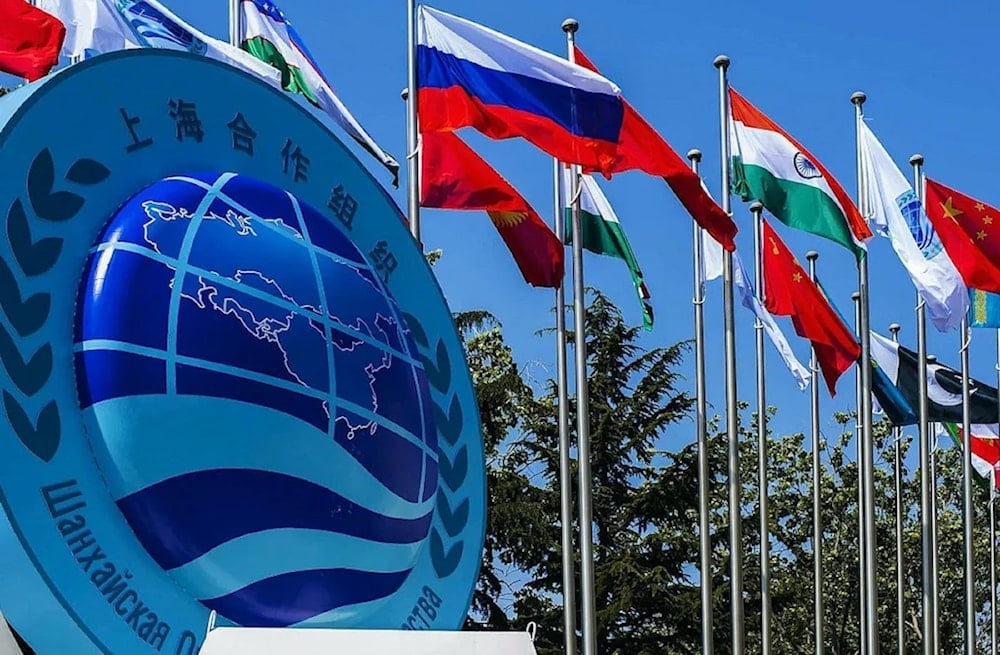Comparing SCO to NATO is wrong: SCO Secretary-General
Comparing NATO and SCO is wrong, they differ greatly in goals, the SCO Secretary-General says.
-

Image of the SCO logo during the Shanghai Cooperation Organization Summit held virtually in India on July 4, 2023. (Image released by the Russian Embassy in India/Social Media)
Nurlan Yermekbayev, the Secretary General of the Shanghai Cooperation Organization (SCO), stated in an interview with RIA Novosti that comparing NATO and the SCO is incorrect due to their significant differences in goals and objectives.
"Firstly, it is difficult and probably wrong to compare NATO and the SCO, since they differ greatly both in their goals and objectives, and in the nature of their activities," Yermekbayev said.
He pointed out that NATO was established as a means of confrontation between the post-war Western bloc and the Soviet Union along with its allies.
The Secretary-General said "This is a military–political organization, and its kind of analogue from the side, let's say, the socialist bloc, was the Warsaw Pact Organization. And the Shanghai Cooperation Organization is not a product of the Cold War, it was not created in conditions or in order to confront anyone. On the contrary, in 2001, when the SCO was created as an organization, it was created precisely for creative, peaceful purposes."
In addition, Yermekbayev noted that NATO is a military-political organization, and the SCO is a peaceful interstate organization.
"The fundamental principle of NATO is the principle of collective security. In other words, aggression against one Member State is considered as aggression against all and against each Member State. There is no such principle of collective security in the SCO," he said.
Additionally, according to the Secretary-General, NATO is a transcontinental organization and the SCO currently unites the Eurasian states, the states of the same continent of Eurasia, adding "That is, it is essentially a Eurasian organization."
Yermekbayev added that the SCO states are closely connected by historical, cultural, and even mental ties, stressing "Therefore, these organizations are different."
Read next: Xi, Putin pledge SCO will maintain path to build better world order

 2 Min Read
2 Min Read








